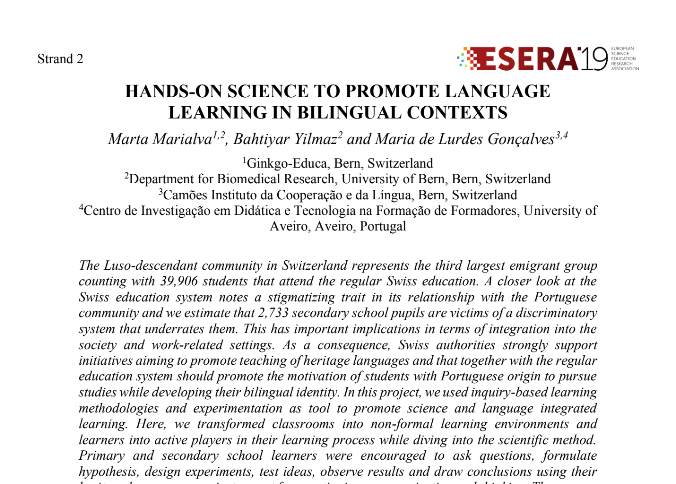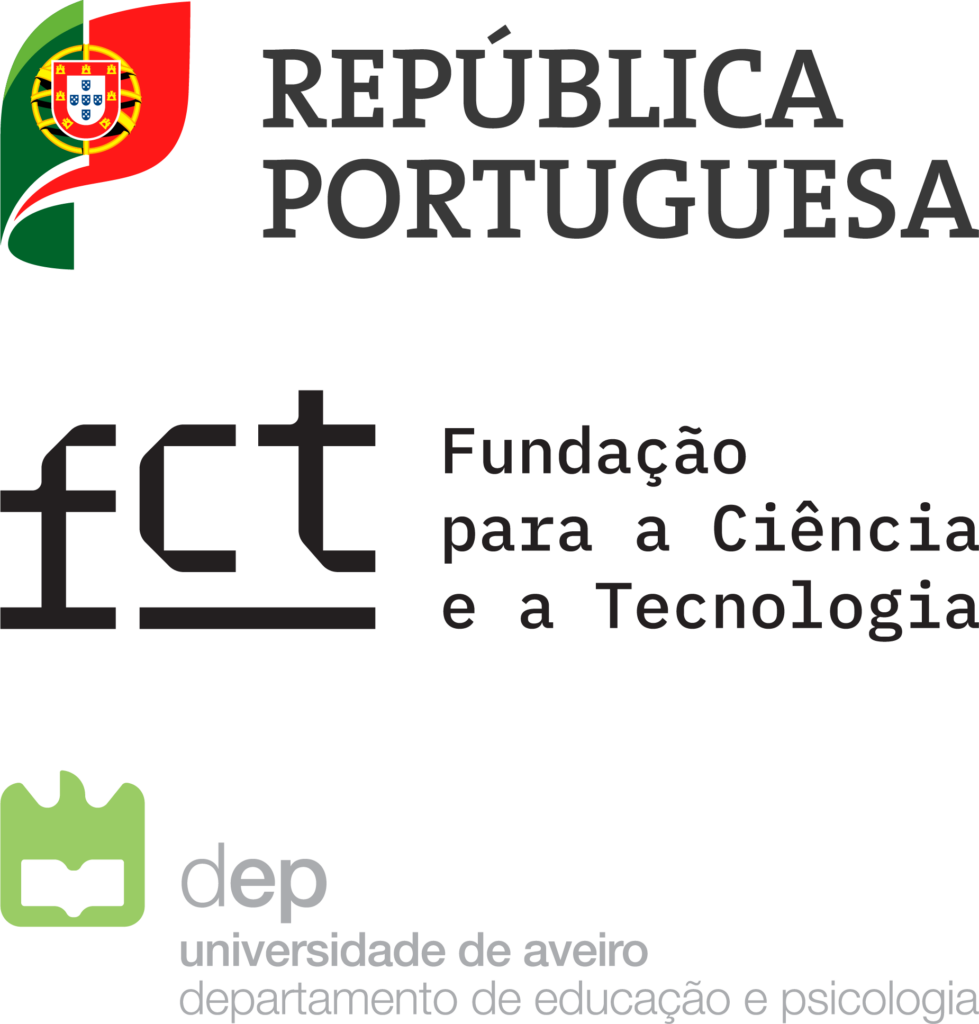Marta Marialva, Bahtiyar Yilmaz & Maria de Lurdes Gonçalves (CIDTFF) | The Beauty and Pleasure of Understanding: Engaging with Contemporary Challenges Through Science Education (Proceedings of ESERA 2019), Part 2: Learning science: Cognitive, affective, and social aspects, pp.244-250
Abstract:
The Luso-descendant community in Switzerland represents the third largest emigrant group counting with 39,906 students that attend the regular Swiss education. A closer look at the Swiss education system notes a stigmatizing trait in its relationship with the Portuguese community and we estimate that 2,733 secondary school pupils are victims of a discriminatory system that underrates them. This has important implications in terms of integration into the society and work-related settings. As a consequence, Swiss authorities strongly support initiatives aiming to promote teaching of heritage languages and that together with the regular education system should promote the motivation of students with Portuguese origin to pursue studies while developing their bilingual identity. In this project, we used inquiry-based learning methodologies and experimentation as tool to promote science and language integrated learning. Here, we transformed classrooms into non-formal learning environments and learners into active players in their learning process while diving into the scientific method. Primary and secondary school learnerswere encouraged to ask questions, formulate hypothesis, design experiments, test ideas, observe results and draw conclusions using their heritage language as an instrument for questioning, communicating and thinking. The success of our hands-on science sessions was evaluated through questionnaires that 106 participants answered before and after the class. The results obtained point to positive implications in terms of acquisition of knowledge, understanding about the scientific process, destruction of prejudices in relation to science, and the broadening of students’ expectations for the future. Additionally, surveys addressed to the Portuguese HeritageLanguage (PHL) teachersso as toclassify our sessions as “good” or “very good” with regard to the introduction of new vocabulary, students’ ability to expose ideas, and increase in the motivation and enthusiasm to learn the heritage language.In summary, this study shows the benefits ofintroducing the scientific method through the use of experimentation, and that of practices centred on “learning by doing”, in multidisciplinary educational contexts such as in PHL learning. However, a more comprehensive study is necessary to justify the application in a larger scale of such alternative methodologies that, together with the formal education system, should broaden students’ future perspectives and increase their understanding and appreciation of the heritage language.
– – – – –
Referência:
Marialva , M., Yilmaz, B., & Gonçalves, M. L. (2020). The Beauty and Pleasure of Understanding: Engaging with Contemporary Challenges Through Science Education (Proceedings of ESERA 2019), Part 2: Learning science: Cognitive, affective, and social aspects (244-250). https://www.dropbox.com/s/18rrrl6ao9yi4cs/ESERA2019.pdf?dl=0





